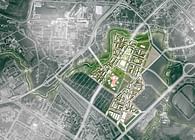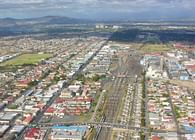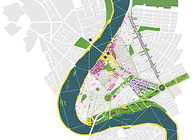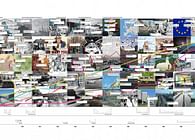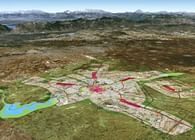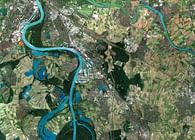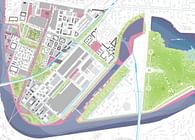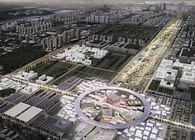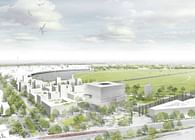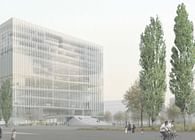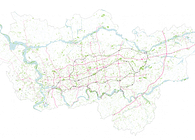
The Netherlands is the country with the 3rd densest roads network in the world and the most dense motorway network in the European Union. Considering this massive amount of road infrastructure within populated areas and urban settings it is surprising that little of it relates to its immediate context. Homogenous boulevards, isolated highways and wide thoroughfares with excessive offsets cut through the city with little relation to neighbourhoods, landscapes, city centres, industrial areas and suburbs, separating and isolating them from each other.
Historically functioning as hybrid open spaces – spaces that simultaneously stimulate social and economic interaction for a mix of various urban actors – the welfare state with its promise of “total care”, top-down planning, the separation of functions and an increasing mobility demand went on cost of their hybrid nature resulting in mostly mono-functional roads, designed to accommodate mainly mobility.
The project acts on roads as the spatial interfaces between different urban fragments. It develops hybrid typologies between them and imagines collaborative projects that bring their citizens in interaction to accommodate their manifold socio-economic needs. In the current context of a predominant “urbanism of neglect” – that mostly focuses on high investment areas – we see a potential in transforming roads into hybrid, socio-economic infrastructures to trigger participation and interaction of broader parts of society. The project argues that this shift of the citizen from a consumer of urban amenities – a habit that was mostly cultivated by the welfare state – to an active participant in urban development reacts much better to the needs of Dutch civil society.
Status: Built
Location: Various sites, NL
Firm Role: Research & Capacity Building
Additional Credits: Team: Ali Saad, Thomas Stellmach, F. Boudon, D. Ronald, Á. Gómez-Sellés, C. Johnston, A. Manou, M. Torres Ruiz for UBERBAU
Consultants: Henk Tromp (Goudappel Coffeng–Transport), Rients Dijkstra (maxwan Urban Planning), Wouter Vanstiphout (Crimson Architectural and Urban History & Theory)
